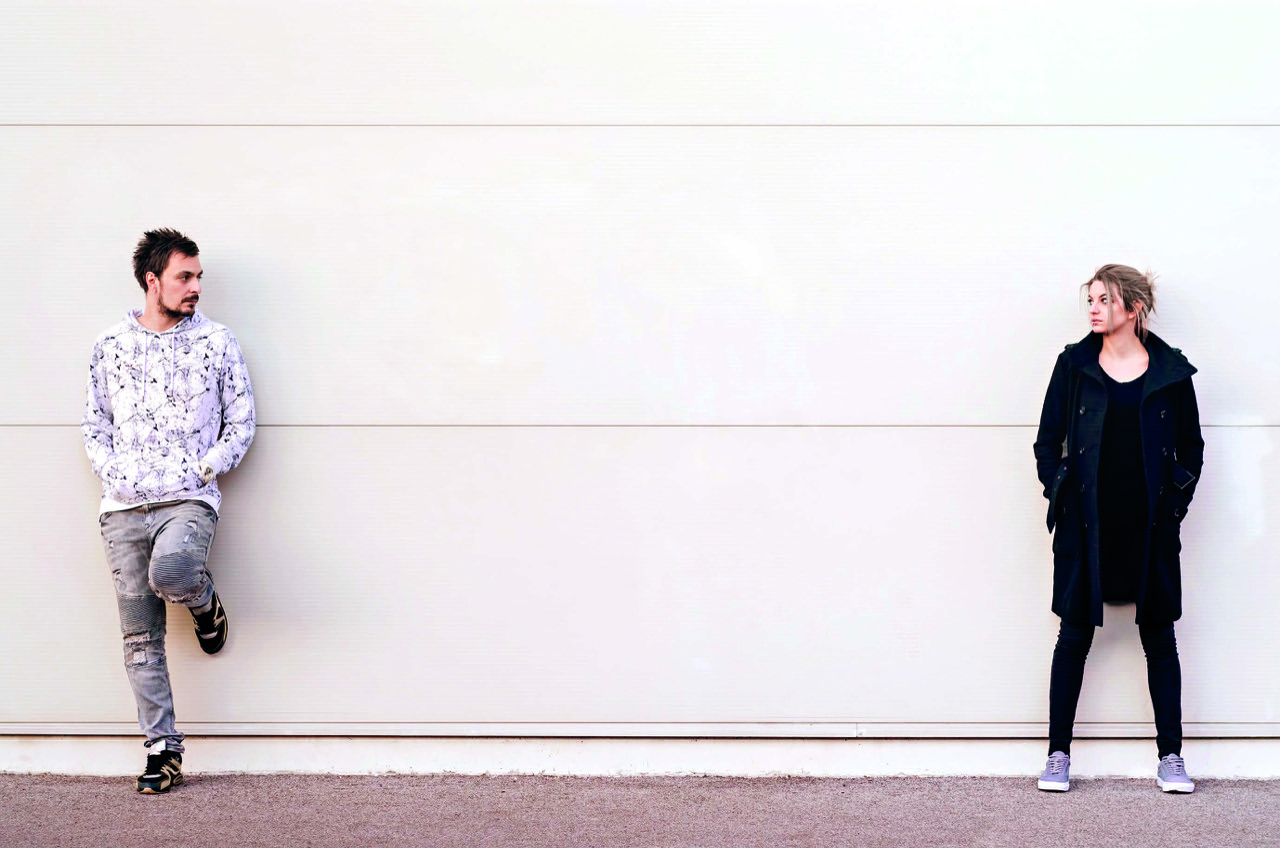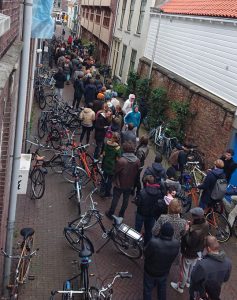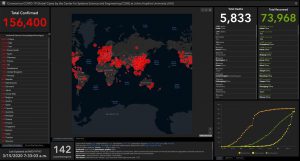Sunday 15 March 2020

Antisocial distancing (Times of India)
Thank Heavens for the Dutch. I know, today at least, that they have fewer confirmed cases of Covid-19 than the Brits, but they have restored my faith in normality.

Stockpiling weed in The Netherlands
In London there is presently a headlong rush to stockpile toilet rolls, but the Dutch are stockpiling weed. Shops are running out of cannabis at the same rate as London’s supermarkets are being emptied of loo rolls, as the public attempts to replenish supplies before their country goes into lockdown. A plea by the supermarkets for the public to stop panic-buying appears to have fallen on deaf ears. Regardless of that, the Dutch are delighting me, as their stockpiling makes me feel slightly less crazy.
I realised this when I returned to my local supermarket to grab two bottles of cider and headed to the checkout to pay. As I waited in line, to my front was a woman with a huge trolley laden with toilet rolls. Behind me were another four shoppers, their equally large trolleys laden with the same. To keep their loo rolls company, the stockpilers had plenty of high-carbohydrate and easy-to-store food. Pasta, flour, chocolate by the ton, and can after can of soup.
In less stressful times, I often sneak a peek at a fellow shopper’s basket, to see what they like eating. On this occasion, it took the briefest glance for me to realise there was nothing in the trolleys that looked remotely appetising, and I was happy to leave stockpiling to others. Anyway, I suspected they would never eat their supplies. All their efforts and antisocial behaviour would be wasted.
I speak from hands-on experience, as I was once a stockpiler. In preparation for the Millennium Bug, when 1999 became 2000, I filled six large plastic boxes to the hilt with goodies. I was even going to plant potatoes in a wood and watercress near the back door. The Bug never happened, my goodies stayed unused, and five years’ later I had to discard them. I can only hope the modern stockpiler fares better than I did, 20 years ago.
When I reached the supermarket checkout with my paltry two bottles of cider, the checkout chap looked at me in worry.
“Are you sure?” he asked.
“Sure what?” I replied.
“Have you got everything?” He indicated the overladen trolleys around me. The supermarket would have been more organised after an earthquake. There was mayhem everywhere. “I mean…” he continued.
“I’m stockpiling cider,” I interrupted. “What else is there to do but stay at home, get sozzled, remain sozzled, and stay there until the crisis is over?”

A vaccine is still some time away
I used to be teetotal, but when I discovered cider, any thought of abstinence flew from the window. My favourite happens to be Dunkertons, which my supermarket does not offer. In these extreme times, with Covid-19 hovering in the wings, I have had to change my allegiance.
“I’ll do the same,” said the checkout chap when he saw my smile. “This stockpiling is completely crazy.”
I went on my way clutching my cider and swept past a stockpiler who was trying to squeeze too much into a tiny, illegally parked Mini. She looked desperate, with bulging eyes, trembling hands, short, sharp breaths, and had already managed to break a carton of half-a-dozen eggs. All I had was cider, which I clutched like a golden treasure, as I headed back to my flat.
Earlier that day I had been for an early morning jog, through a largely empty Hyde Park. I had come across one coughing woman, who was leaning on a park bench as I went past, so I gave her an enormous berth. For the few dawn joggers and walkers who were out and about, I could see everyone studying everyone else, and making wide detours onto the grass from the various paths, to ensure as wide a separation distance as possible. The recognition of what is being called social distancing is becoming increasingly accepted by the public, but the phrase seems to be wrong. Antisocial distancing would be more accurate. In brief, you want to be as far away from others as possible and stay there as long as you can.
Having reached the far extent of my jog, I headed for home, although I was so exhausted I was on the verge of breaking into a walk. I passed four taxi drivers outside a central London hotel. They were looking serious, swearing about life in hushed tones, while one was repeatedly blowing his nose productively. Again, I gave the group as wide a berth as possible. My one brief jog had shown me there was clearly disease around. Covid-19, influenza, common cold? I have no clue, but I was not after acquiring any of them.
I crossed from Hyde Park towards Marble Arch heading towards my apartment. The normally busy Park Lane was largely empty, save for two expensive cars, their engines revving, while they waited for the traffic light to turn green. I just made it across, before there was a throaty roar from the two engines – one was a Mercedes, the other a McLaren – as the wealthy racers hurtled round Marble Arch, one determined to outdo the other. For them there was no crisis, it was the racing that counted, with no police in sight to stop them.

The situation this morning – 15 March 2020 (courtesy Center for Systems Science and Engineering at Johns Hopkins University)
There is talk at the moment about bringing forward plans that the Government had hoped might be implemented later. One such plan is to self-isolate those aged over 70 years. I can see the logic but to be isolated for three to four months? That is asking a lot. I am not in that particular age group but do have friends who are. If I was confined to my apartment for so long, I would go stir-fried crazy within moments. The view I would have is of a cast-iron railing, a few cars and buildings, a tiny tree and, at the moment, a pile of dog dirt. I would probably opt to take my chances with Covid-19. I have taken to looking in a mirror each time I pass one, for fear I may look more than my 66 years and in case they stick policemen on the street to stop the oldies wandering. In my case it will be a close call, as I have more wrinkles than an avocado.
The Italians are solving the problem of isolation by singing from balconies and rooftops, with whole villages chanting their National Anthem in unison. There was one particular fellow who gave a wonderful rendition of Nessun dorma (“Let no one sleep”) – quite tear-jerking. Other countries are trying to do the same yet somehow are not so tuneful.
Around the world, the Covid-19 issue continues, although China claims that its troubles are declining. I will keep my fingers crossed it stays that way. Meanwhile Spain and France have announced sweeping restrictions, Austria has banned most gatherings, and Germany has imposed border controls. Meanwhile Trump has had his test for coronavirus, which has turned out negative. Perhaps that gave him renewed enthusiasm to offer large sums for exclusive access to a coronavirus vaccine, which is what has been reported.
Vaccines take some time to prepare but a human trial is already underway in Washington state although it will take a year to 18 months to see if the vaccine is safe and effective. Vaccine development is a lengthy process, even when the pressure is on. It starts with preclinical development, which is when the relevant antigens or DNA are identified. Vaccine efficacy is at that stage tested in animals. This leads to clinical development, which is divided into four phases. Phase I comprises small-scale trials in humans to see if the vaccine is safe and what immune response it creates. Phase II has larger trials, Phase III larger still involving hundreds of subjects across multiple sites. Phase IV is after the vaccine has been licensed and introduced into use.
So far, with Covid-19, the vaccine has just entered Phase I.
